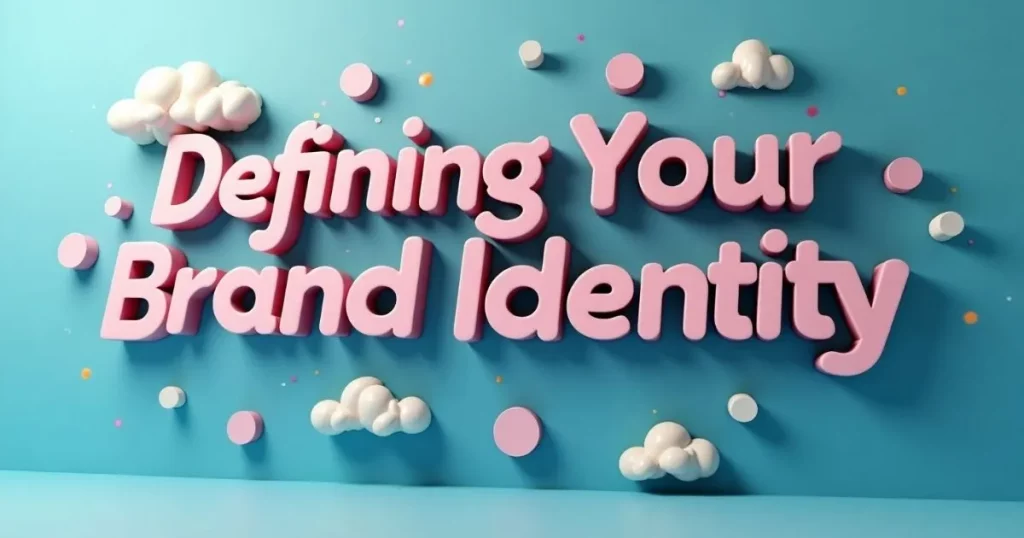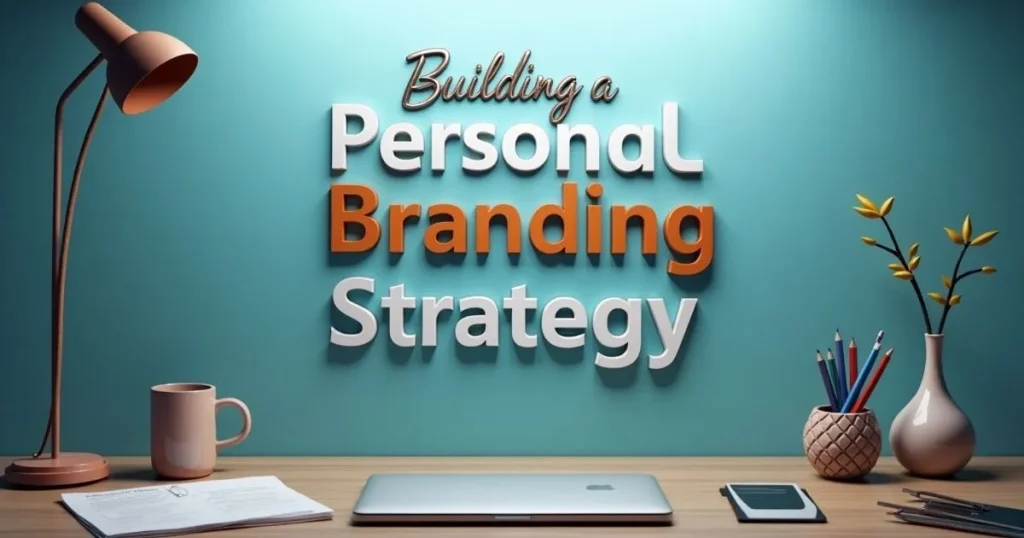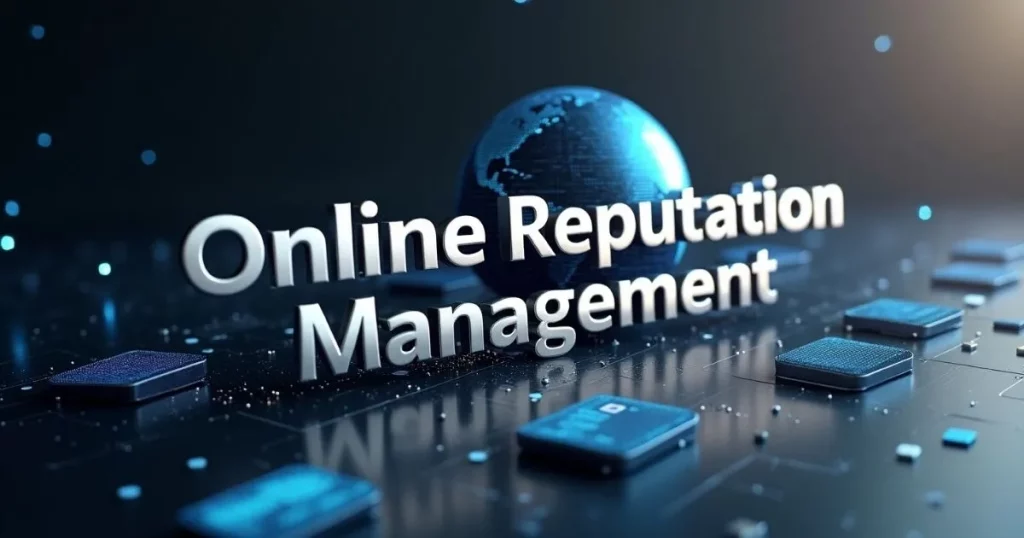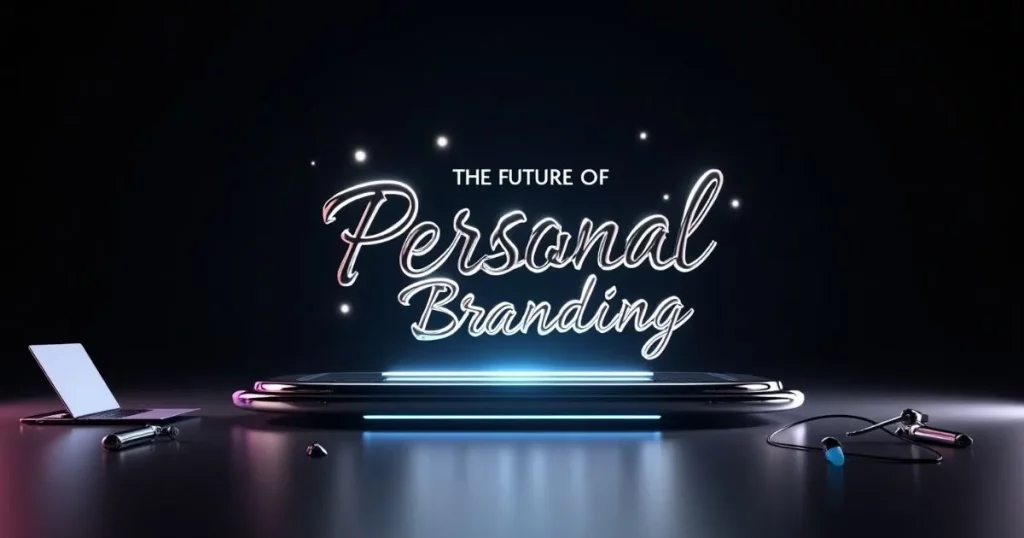In a world where attention spans are shorter than ever and digital noise is louder by the second, being good at what you do simply isn’t enough. If you’re not visible, you’re invisible. For entrepreneurs, especially in fast-growing markets like Thailand, personal branding is no longer a luxury—it’s a competitive necessity.
Consumers don’t just want to know what you offer. They want to know who you are. They follow faces, not logos. They trust stories, not sales pitches. And they buy from people they feel connected to. That’s the power of a strong personal brand—it builds familiarity, authority, and trust before a single transaction happens.
Whether you’re a coach, consultant, founder, or freelancer, your online presence is your digital handshake. It’s your first impression. And if it’s not strategic, consistent, and authentic, you’re leaving opportunities on the table.
The good news? You don’t need to be famous to be influential. You just need to be intentional. With the right personal branding strategy, you can position yourself as a thought leader, build a loyal following, and open doors that cold outreach never could.
This article will break down exactly how entrepreneurs—especially those navigating Thailand’s dynamic business ecosystem—can build a personal brand that stands out, gets noticed, and drives real business growth.
Ready to make your name mean something online? Let’s get into it.
Key Takeaways
- A strong personal brand is essential for online visibility and trust.
- Entrepreneurs in Thailand and globally must position themselves as thought leaders.
- Personal branding isn’t just visuals—it’s reputation, messaging, and values.
- Strategies like storytelling, consistent content, and social proof boost authority.
- Managing online reputation is crucial in a saturated digital space.
Why Personal Branding Matters More Than Ever

The business landscape has changed—and fast. What used to be the domain of corporate branding has now shifted to individual influence. Customers are no longer satisfied with polished company profiles or sleek product pages. They want to know the people behind the brand. Who are you? What do you stand for? Can they trust you?
This is where personal branding takes the lead. In today’s sceptical digital age, trust is currency. And trust is built through visibility, consistency, and authenticity. Whether you’re launching a new venture or growing an existing one, people want to feel like they’re buying from someone who gets it—not just a faceless business.
Social proof plays a massive role. Entrepreneurs who actively share insights, engage with their audience, and show up as themselves create a sense of connection that paid ads simply can’t replicate. And when it comes to credibility? A solid personal brand can tip the scales in funding conversations, partnership opportunities, and client acquisition—especially in Thailand, where relationships often trump transactions.
Look at founders like Araya Indra or Thossaporn Serirak. They’re not just known for their businesses—they’re known for who they are. Their personal visibility has helped amplify their brand reach, attract media attention, and build a loyal audience that moves with them, no matter what venture they pursue next.
Personal branding isn’t just for influencers or public speakers. It’s for anyone serious about making an impact, online and offline. In a crowded digital space, it’s often the deciding factor between being seen—and being overlooked.
Defining Your Brand Identity as an Entrepreneur

Before you can stand out online, you need clarity on what makes you you. This is the heart of personal branding—defining your identity as an entrepreneur. It’s not just about looking polished; it’s about being intentional with how you show up and what you stand for.
Understanding Your Unique Value Proposition (UVP)
Your UVP is the overlap between your skills, passions, and the needs of your audience. It’s what sets you apart in a saturated market. Maybe it’s your lived experience, your cultural insight, or your fresh approach to a common problem. Whatever it is, owning that difference is the first step to building a strong personal brand.
Aligning Personal Values with Brand Messaging
People connect with values, not just services. Are you all about innovation? Empowerment? Simplicity? These values should run through your content, tone of voice, and messaging. When you’re clear about what you stand for, the right audience will gravitate towards you.
Creating a Visual and Verbal Identity
Brand identity isn’t just what you say—it’s how you present it. From the style of your LinkedIn posts to the colours on your website, every element should reinforce your positioning. Entrepreneurs in Thailand, for instance, should consider how local culture, language nuances, and design aesthetics impact perception and trust.
Exercises to Discover Your Brand Identity
- Write your personal origin story. What sparked your journey?
- List five values you want to be known for.
- Define your ideal audience—who are they, and what do they care about?
Clarity is powerful. When your brand identity is authentic and strategic, it becomes a magnet—pulling in clients, collaborators, and opportunities aligned with your vision.
Building a Personal Branding Strategy That Works

A strong brand identity is your foundation—but strategy is what brings it to life. Without a plan, even the most authentic brand can get lost in the digital noise. So how do you turn clarity into visibility? Here’s how to build a personal branding strategy that actually delivers results.
Choose the Right Platforms
Not every platform fits every entrepreneur. If you’re a B2B consultant, LinkedIn is your playground. If you’re visually driven—say, a creative or lifestyle coach—Instagram might be your stage. Writers may thrive on Medium or Substack, while podcasts and YouTube work brilliantly for those who communicate best through voice and video. Pick 1–2 platforms where your audience already spends time, and focus there.
Create Content Pillars Around Your Expertise
Consistency isn’t just about frequency—it’s about message. Define 3–5 core content themes that reflect your values, insights, and goals. For example:
- Behind-the-scenes of your entrepreneurial journey
- Industry insights or trends
- Personal stories that humanise your brand
- Tips or frameworks that showcase your knowledge
This keeps your content focused, relevant, and easier to scale.
Leverage Storytelling and Authenticity
People remember stories, not statistics. Share moments that shaped you—failures, lessons, mindset shifts. When done with purpose, vulnerability builds deep trust. Just be sure to keep it aligned with your message. Oversharing without strategy? That’s just noise.
Stay Consistent and Show Up Long-Term
Branding is a marathon, not a sprint. Show up regularly—even when you’re not getting likes or DMs. It’s often the silent lurkers who later become high-value clients or partners. Use scheduling tools, batch content creation, and stay committed to your long-term vision.
Case Study: A Bangkok-Based Coach Who Tripled Clients with a Personal Blog
A mindset coach in Bangkok began sharing weekly blog posts about common entrepreneurial blocks. Within six months, she went from sporadic inquiries to a 3x increase in bookings—simply by showing up consistently, sharing real stories, and focusing on value.
Becoming a Thought Leader in Your Niche

Being visible is great—but being valuable is what sets thought leaders apart. Thought leadership marketing goes beyond brand awareness. It positions you as the go-to expert in your space, someone people trust not just to sell, but to lead conversations, challenge norms, and spark change.
Thought Leadership vs. Content Marketing
Content marketing educates. Thought leadership elevates. It’s about offering original insights, bold opinions, and future-focused thinking that others aren’t talking about yet. Entrepreneurs who successfully embrace this not only gain respect—they become sought after.
In Thailand’s rapidly evolving startup and SME landscape, thought leadership is still emerging as a major differentiator. By being one of the first in your niche to take a stand or share a new perspective, you can quickly rise above the competition.
How to Position Yourself as a Go-To Expert
- Publish long-form content that showcases depth of knowledge—think LinkedIn articles, opinion pieces, or newsletters.
- Speak on podcasts, panels, or webinars where your ideal audience is listening.
- Guest post on niche or local publications that already have authority.
- Collaborate with influencers or other industry leaders to amplify your message.
You don’t need a huge following to be a thought leader—just a clear point of view and the courage to share it.
Tips to Start Thought Leadership Marketing
- Turn FAQs from your clients into expert content.
- Predict trends or offer commentary on industry shifts.
- Use video or carousels to make complex topics digestible and engaging.
- Don’t shy away from disagreeing with popular opinions (respectfully).
Becoming a thought leader isn’t about ego—it’s about impact. When your name becomes synonymous with insight, trust, and innovation, opportunities follow.
Online Reputation Management for Entrepreneurs

You could have the most compelling brand and brilliant strategy—but if your online reputation tells a different story, you’re in trouble. In the digital age, your reputation is your résumé, and managing it proactively is essential for entrepreneurs who want to be taken seriously.
Google Yourself: What Shows Up?
The first thing a potential client, investor, or partner will do? Search your name. If outdated bios, inconsistent messaging, or irrelevant content appears—or worse, nothing at all—you’re missing a key opportunity to build trust. Make sure your online presence reflects who you are now, not who you were five years ago.
Respond to Feedback and Engage
Reviews, comments, and public mentions matter. Whether it’s Google reviews, LinkedIn endorsements, or social media tags, engage with them—especially the negative ones. A thoughtful response to criticism often earns more respect than the criticism itself. Silence, on the other hand, speaks volumes.
Use Tools to Stay Ahead
Set up Google Alerts for your name and brand. Use social listening tools like Mention or Brand24 to monitor how people are talking about you. This helps you catch issues early and turn potential risks into opportunities to show professionalism and care.
Encourage Social Proof
Request testimonials, case studies, or media features from happy clients and collaborators. These third-party validations carry far more weight than anything you say about yourself. In Thailand’s relationship-driven business culture, social proof is a game-changer.
Managing your online reputation isn’t damage control—it’s brand control. And the more visible you become, the more essential it becomes to actively shape your digital narrative.
Common Mistakes to Avoid in Personal Branding

1. Inconsistency Across Platforms
Personal branding can be powerful—but only if it’s done right. Here are some of the most common pitfalls entrepreneurs should steer clear of:
Your tone, visuals, and messaging should align everywhere—from LinkedIn to Instagram to your email signature. Mixed signals confuse your audience and weaken your credibility.
2. Prioritising Aesthetics Over Substance
A polished feed means nothing without value. Focus on substance first—insightful content, meaningful engagement, and authentic storytelling.
3. Ignoring Your Audience
Posting into the void won’t build a brand. Pay attention to comments, DMs, and feedback. Your audience is telling you what they need—listen and adapt.
4. Failing to Evolve
As you grow, so should your brand. What worked two years ago may not reflect where you are now. Review and refresh your brand regularly to stay relevant.
Avoid these mistakes, and you’ll build a brand that not only attracts attention—but earns lasting trust.
The Future of Personal Branding in Thailand and Beyond

Personal branding isn’t a passing trend—it’s evolving into one of the most powerful assets an entrepreneur can build. And in Thailand, where community, connection, and reputation carry significant weight, this evolution is happening fast.
Authenticity Over Perfection
Audiences are craving realness. Overly curated personas are losing ground to transparent, value-driven storytelling. The future belongs to those who show up as they are—flaws and all.
The Rise of the Influencer-Founder Hybrid
Entrepreneurs are no longer just business owners—they’re becoming mini-media brands. We’re seeing more founders blend personal insights with lifestyle content to create a deeper connection with their audience.
AI and Personal Branding: Friend or Foe?
While tools like ChatGPT can enhance content creation, human touch still wins. The real opportunity lies in using AI to support your brand, not replace your voice.
Personal branding in Thailand and beyond is about connection, not just conversion. Build it with intention, and it will serve you for years to come.
Final Thoughts – Build a Brand That’s Unmistakably You

Your personal brand isn’t just what people see—it’s what they feel when they come across your name online. It’s your reputation, your message, and your mission wrapped into one. Whether you’re building a business in Bangkok or scaling globally, your personal brand is the bridge between you and the opportunities you’re aiming for.
The entrepreneurs who win in today’s world aren’t always the loudest or flashiest—they’re the clearest, the most consistent, and the most human. Build a brand that reflects you, and you’ll build trust that lasts.
Ready to make your personal brand work as hard as you do?
At Northern Kites, we help entrepreneurs craft magnetic personal brands that open doors—online and off. Whether you’re just starting or levelling up, our branding experts in Bangkok can help you define your voice, grow your authority, and stand out where it counts.
👉 Book a free consultation today and start building a brand that leads.
FAQs
What is a personal branding strategy for entrepreneurs?
A personal branding strategy is your blueprint for becoming the go‑to expert in your industry. For entrepreneurs in Thailand, it includes:
- Define Brand Pillars: State what you stand for (e.g., “Helping expats launch businesses in Thailand”) and your unique perspective (e.g., “SEO for Thai-localized markets”).
- Content & Messaging: Develop a signature tone (casual vs professional) and focus on solving audience pain points (e.g., “How to avoid Thai visa mistakes”).
- Visual Identity: Use consistent colors, fonts, and profile photos across platforms like LinkedIn, Instagram, and YouTube.
- Platform Strategy: Prioritize 1–2 platforms—e.g., LinkedIn for B2B or TikTok for younger audiences—and tailor content accordingly.
Thailand Tip: Blend professional credibility with local relatability—share BTS from Bangkok networking events to connect culturally.
How does personal branding help grow my business?
- Trust = Sales: 82% of consumers trust companies when founders are visible. Example: A Bangkok financial advisor shares Thai/English tax tips and gains clients.
- Exponential Opportunities: Become a magnet for partnerships (e.g., with Thai brands) and media coverage (e.g., features in BK Magazine).
- Edge in Thailand: Personal connections matter—Thais prefer doing business with people they like and know.
Case Study: A Phuket real estate agent tripled sales by posting local market updates and hosting live Q&As on property laws.
What platforms are best for personal branding in Thailand?
| Platform | Best For | Thai Audience Tip |
|---|---|---|
| B2B, consulting, professional services | Post bilingual Thai + English content | |
| Visual brands, coaches, E‑commerce | Use Reels and Thai hashtags (#ธุรกิจไทย) | |
| TikTok | Gen Z, educators, viral tips | Short tips with Thai captions |
| YouTube | Tutorials, deep dives | Optimize videos for “Thailand” keywords |
| Pantip | Local credibility, niche communities | Answer questions in forum threads |
Strategy: Focus on a primary platform (e.g., LinkedIn), then repurpose content to secondary ones (e.g., turn LinkedIn posts into TikTok scripts).
How can I manage my online reputation effectively?
- Monitor Mentions: Use Google Alerts and scan Pantip, Reddit Thailand, and Facebook Groups for brand mentions.
- Control the Narrative: Claim your profiles across platforms and respond professionally to reviews, even negative ones.
- Proactive Building: Publish case studies (“How I helped a client win a Thai work visa”) and share testimonial carousels.
Thai Tip: A respectful wai emoji (🙏) in replies defuses tension culturally and shows humility.
Is personal branding important in the Thai business market?
- Relationship-Driven: Thai culture values personal connections—your face builds trust faster than a brand name.
- Expat Advantage: A strong personal brand helps bridge trust gaps between foreigners and locals.
- Stand Out: Example: A Bangkok fitness coach attracts clients by posting bilingual workout Reels and expat success stories.
Action Step: Post consistently—e.g., 2 LinkedIn posts and 1 Reel each week.
Bonus: Quick Wins for Personal Branding in Thailand
- Collaborate: Guest post on sites like The Smart Local Thailand; work with nano‑influencers.
- Leverage Events: Speak at Bangkok Entrepreneur Meetups and repurpose your talk into content.
- Use Thai Keywords: Sprinkle hashtags like #ทำธุรกิจในไทย in your English posts to boost local reach.


